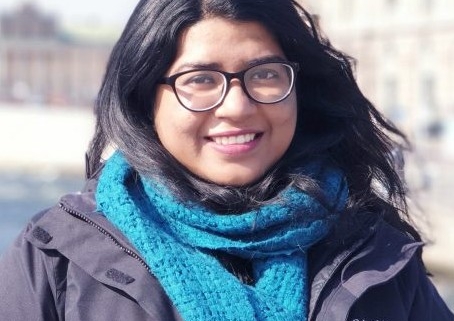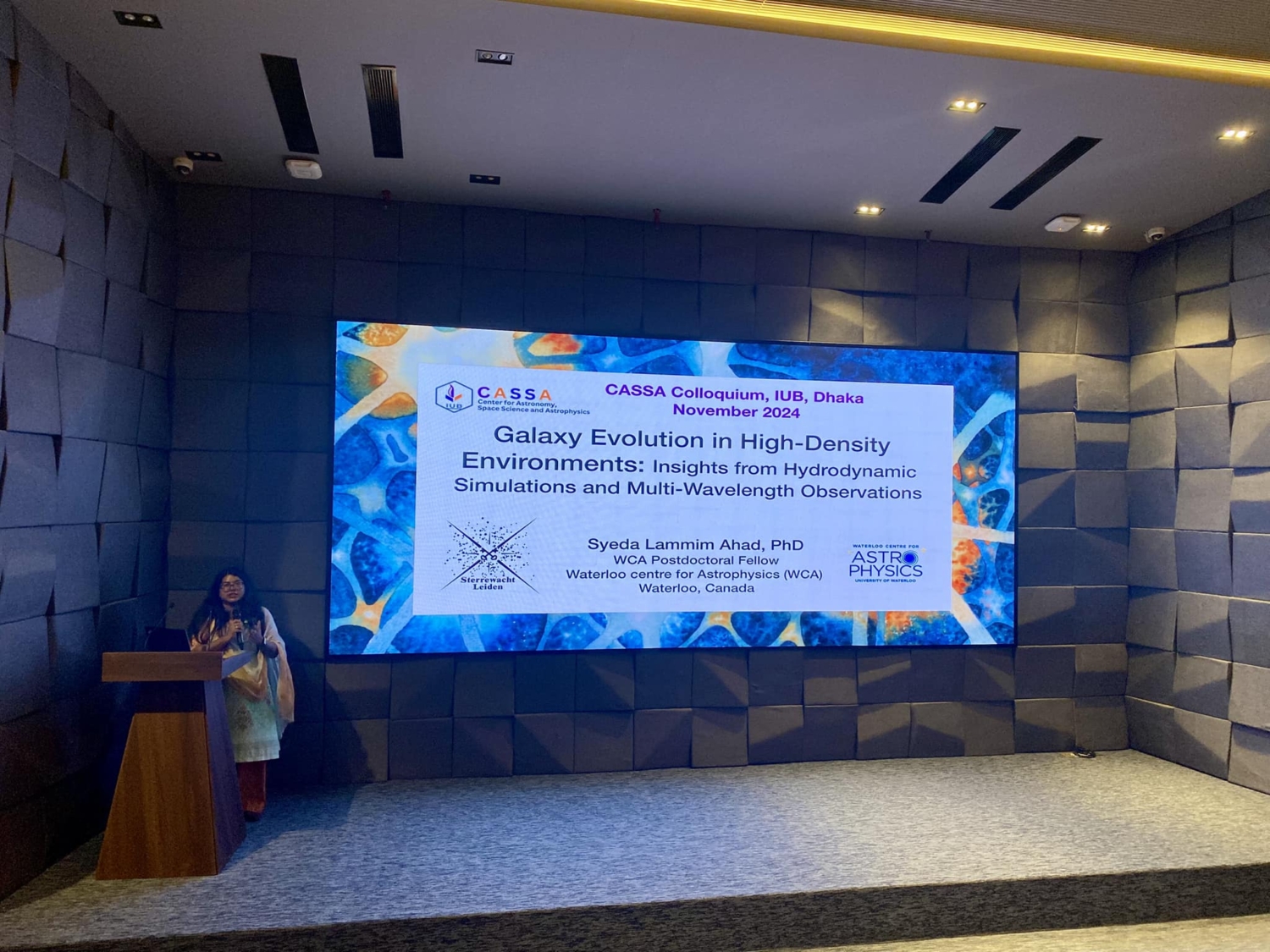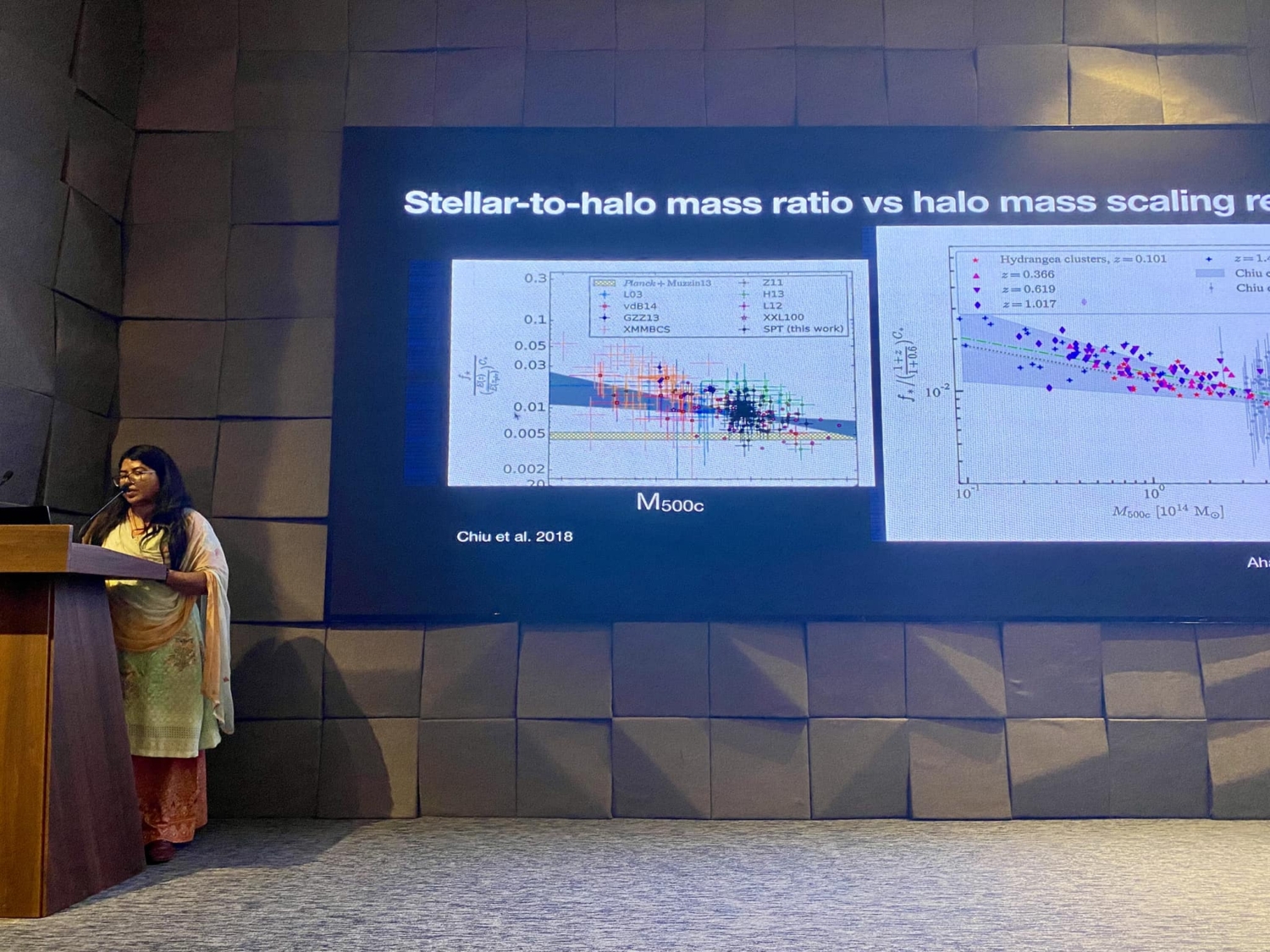
Speaker:
Syeda Lammim Ahad, PhD, WCA Postdoctoral Fellow, Waterloo Centre for Astrophysics, University of Waterloo, Canada; Associate Member, CASSA.
Abstract:
Galaxies in the Universe are distributed along the intricate framework of the Cosmic Web. Groups and clusters of galaxies comprise the densest regions in this network and therefore, are excellent cosmic laboratories to study different aspects of galaxy evolution in extreme environments. With the development of realistic cosmological hydrodynamic simulations, we now have an excellent opportunity to study such galaxy evolution in extreme environments combining theory and observations. In this colloquium, I will present the results from several studies exploring different properties of cluster galaxies and their host systems, such as the spatial distribution of mass in galaxies within clusters, the faint and diffuse stellar halo in groups and clusters, and processes that quench star formation in massive galaxies in high-redshift clusters. I will discuss major questions, current understanding, and future research directions. Finally, I will discuss the scope for conducting such research from Bangladesh, illustrating the potential for local contributions to the global astrophysics community.
Relevant reading:
- Ahad et al., 2024, An environment-dependent halo mass function as a driver for the early quenching of z ≥ 1.5 cluster galaxies, MNRAS.
- Ahad et al., 2023, How to interpret measurements of diffuse light in stacked observations of groups and clusters of galaxies, MNRAS.
- Ahad et al., 2021, The stellar mass function and evolution of the density profile of galaxy clusters from the Hydrangea simulations at 0 < z < 1.5, MNRAS.
- আইইউবিতে গ্যালাক্সির বিবর্তন নিয়ে সৈয়দা লাম্মীম আহাদের সেমিনার, বিজ্ঞানচিন্তা, প্রথম আলো।





